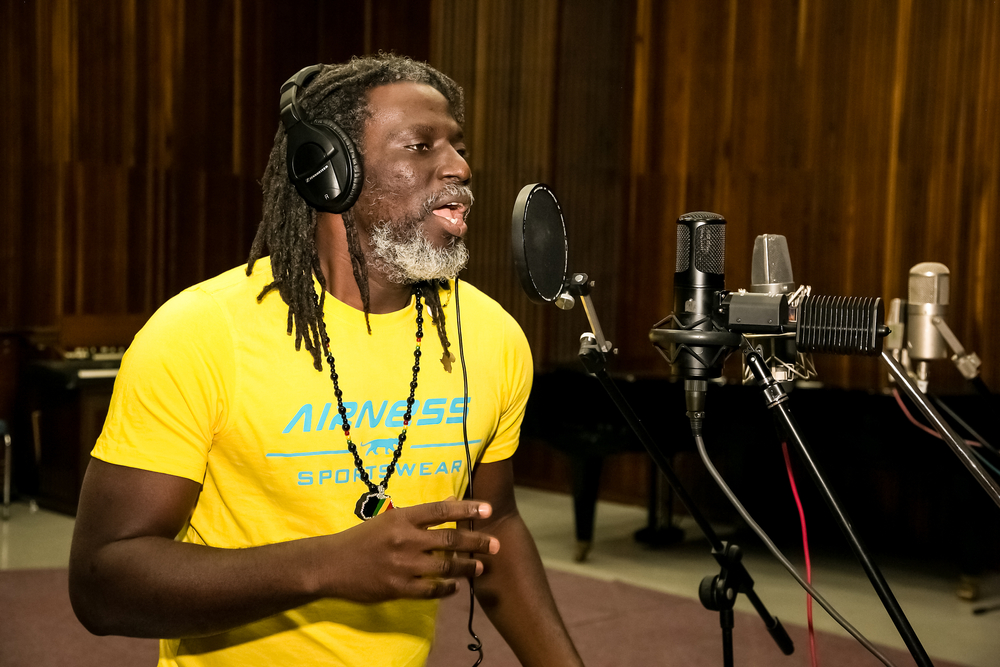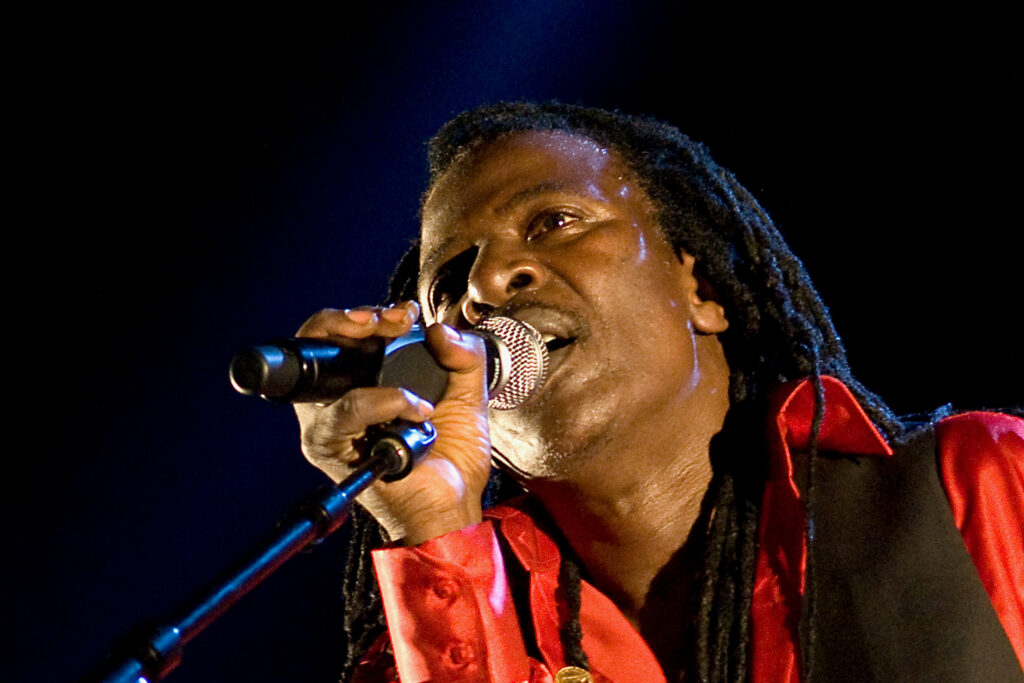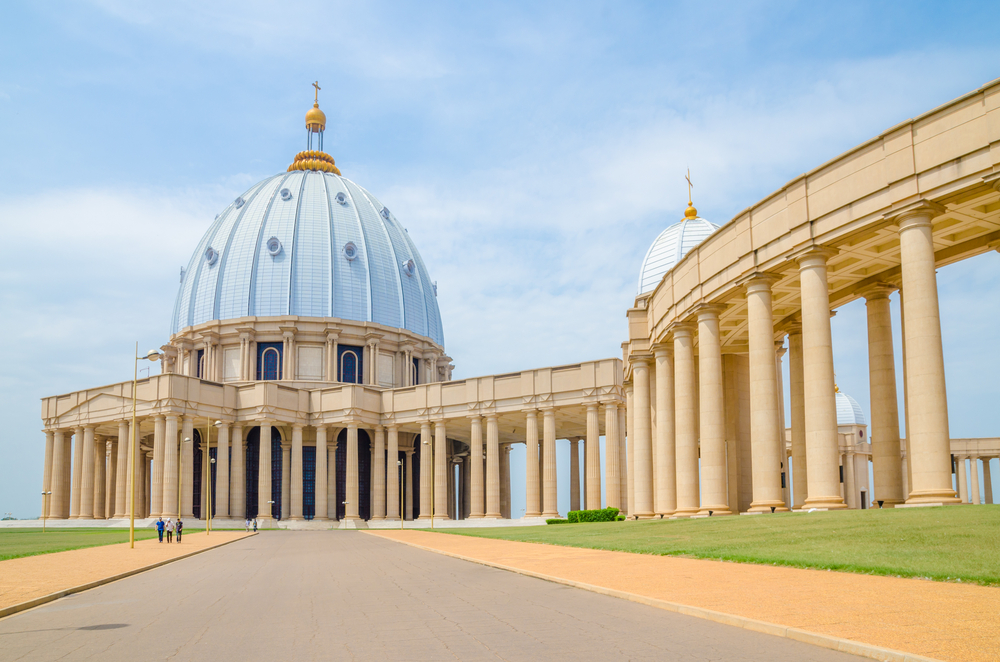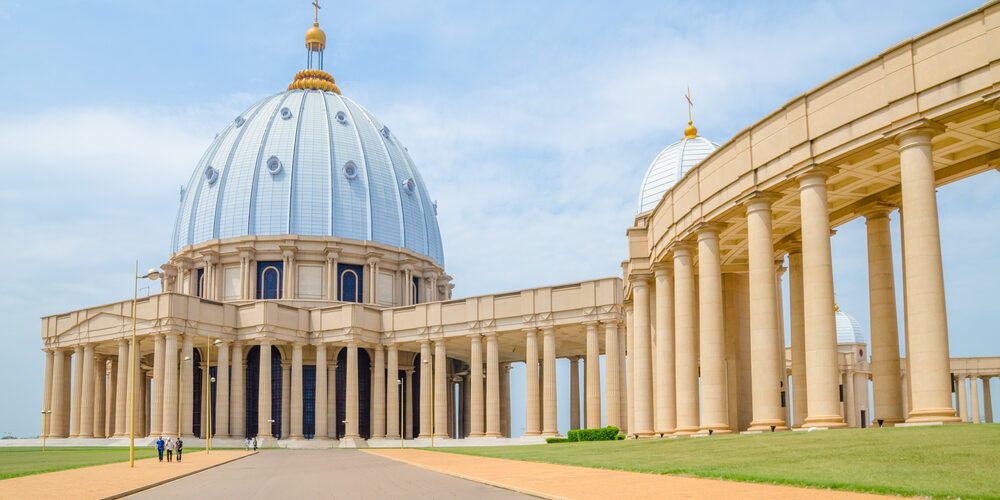Reggae music in Ivory Coast
Reggae in Ivory Coast pulses with deep roots and revolutionary spirit, blending West African rhythms with Jamaica’s rebel sound. Alpha Blondy electrified the scene with politically charged anthems, while Tiken Jah Fakoly kept the movement going, giving voice to the people’s struggles. From Abidjan’s streets to international stages, these two artists are the defining voices of Ivorian reggae.
Tiken Jah Fakoly
Born in Odienné in 1968, Tiken Jah Fakoly came of age as political unrest rippled through Ivory Coast His lyrics challenged those in power, naming names, exposing hypocrisy. He became known for his fearless critiques of political corruption and social injustice, but his words came at a cost. By the early 2000s, as the country descended into civil war, his outspokenness made him a target. After receiving death threats, he fled to Mali.
Leaving his country didn’t silence him. Instead, his music surged with more urgency. His album African Revolution was a manifesto, a call to arms for a continent still wrestling with the ghosts of colonialism and the failures of its leaders. On the title track he pushes for self-reliance, education, and an end to neo-colonialism. It’s a manifesto wrapped in riddim, a challenge to a continent long exploited and a system that thrives on dependency.

Then there’s Africain à Paris, his reimagining of Sting’s Englishman in New York. But where Sting played the charming outsider, Fakoly’s version hits harder. The song tells the story of an African immigrant navigating the cold, indifferent streets of a European capital—facing suspicion, resilience, and a truth often left unspoken.
Even from afar, Fakoly has remained a force in Ivorian politics and pan-African activism. His music speaks to the streets of Abidjan as much as to the clubs of Paris. More than a reggae artist, he is a modern-day griot, mixing ancestral wisdom with the rhythms of resistance.
Alpha Blondy
Alpha Blondy is the uncompromising voice of African reggae, an artist whose music transcends borders and languages. With a career spanning over four decades, he has blended the revolutionary spirit of Kingston with the raw realities of post-colonial Africa. From political anthems to spiritual reflections, his songs have served as both a rallying cry and a healing force.
Born Seydou Koné in 1953 in the central Ivorian town of Dimbokro, Alpha Blondy’s journey to international fame was anything but linear. Raised in a devout Muslim household, he found himself drawn to both Western and African influences, blending the griot storytelling traditions of his ancestors with the raw energy of rock and reggae. As a young man, he left Ivory Coast to study in Liberia and later in the United States, where he immersed himself in the countercultural movements of the 1970s.
It was in New York that he encountered reggae in its rawest form. The hypnotic beats of Bob Marley and Peter Tosh struck a chord, and Blondy realized that reggae could be more than just music—it could be a movement. New York City became his proving ground, where he studied English at Hunter College and busked on subway platforms. Returning to Ivory Coast in the early 1980s, he set out to craft a sound that fused Jamaican roots reggae with West African rhythms, singing in a mix of languages: Dioula, French, English, and even Hebrew.

Blondy’s music has long reflected the political and social landscapes of his time. From the early anthems like Brigadier Sabari, a scathing critique of police brutality, to Cocody Rock, a tribute to the neighborhood where he recorded some of his most iconic songs, his work captures the struggles and aspirations of the African continent.
His album Aparthied Is Nazism is a reggae manifesto that pulses with the urgency of its era, blending militant lyrics with the smooth, hypnotic rhythms of the Ivory Coast. Released in 1985, the album is both a fierce political statement and a masterclass in roots reggae, echoing the revolutionary spirit of Bob Marley while infusing it with West African energy.
In 1986, Blondy reached a career milestone by recording Jerusalem in Kingston with Bob Marley’s former band, The Wailers. The title track remains one of his most famous, blending biblical themes with a call for religious unity. His deep connection to Israel has been a defining aspect of his artistic persona, as seen in his frequent use of Hebrew in lyrics and his advocacy for interfaith peace.
For him, Israel is not a political stance but a spiritual destination, a place where history converges with faith. He has performed there many times, his concerts drawing crowds as diverse as his music.
His affection for the world’s cultural capitals is evident in I Love Paris, a tribute to the French capital. The song captures the city’s alluring cosmopolitan spirit, blending reggae’s laid-back groove with lyrics that celebrate Paris’s enduring appeal. It stands as a testament to Blondy’s ability to bridge cultures through music, paying homage to a city that has long been a crossroads for artists, intellectuals, and revolutionaries.
Beyond music, Blondy has remained an outspoken advocate for peace in Africa. In a region often fraught with political instability, his calls for unity have resonated deeply. During the Ivorian civil war in the early 2000s, he used his platform to urge reconciliation, even visiting rebel leaders and government officials alike in a bid to foster dialogue.
His song Peace in Liberia stands as one of the most poignant examples of his activism. Written during Liberia’s brutal civil war, it is both a plea and a prophecy, urging an end to the bloodshed and envisioning a future where the wounds of war could heal.







